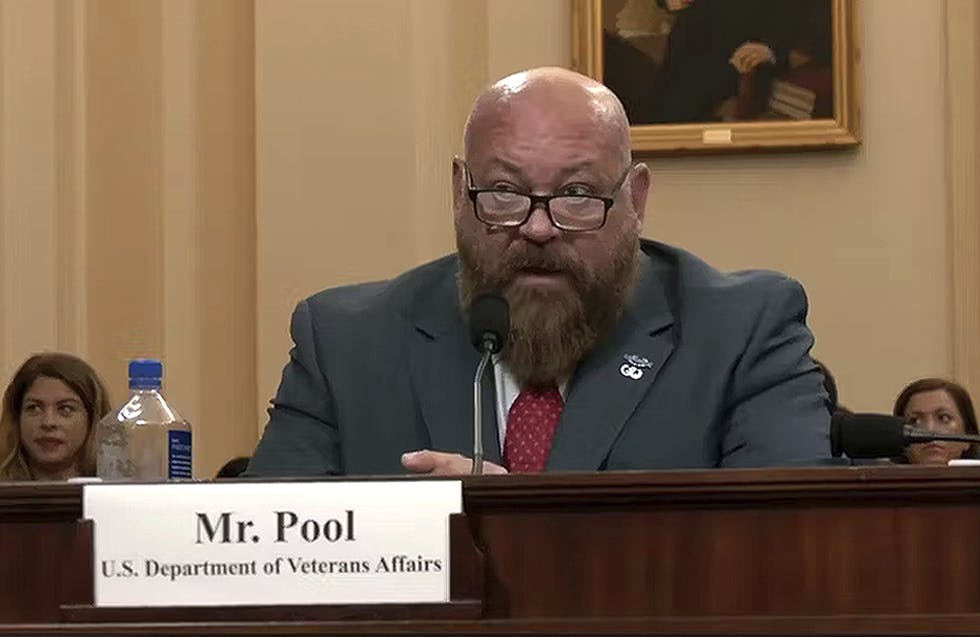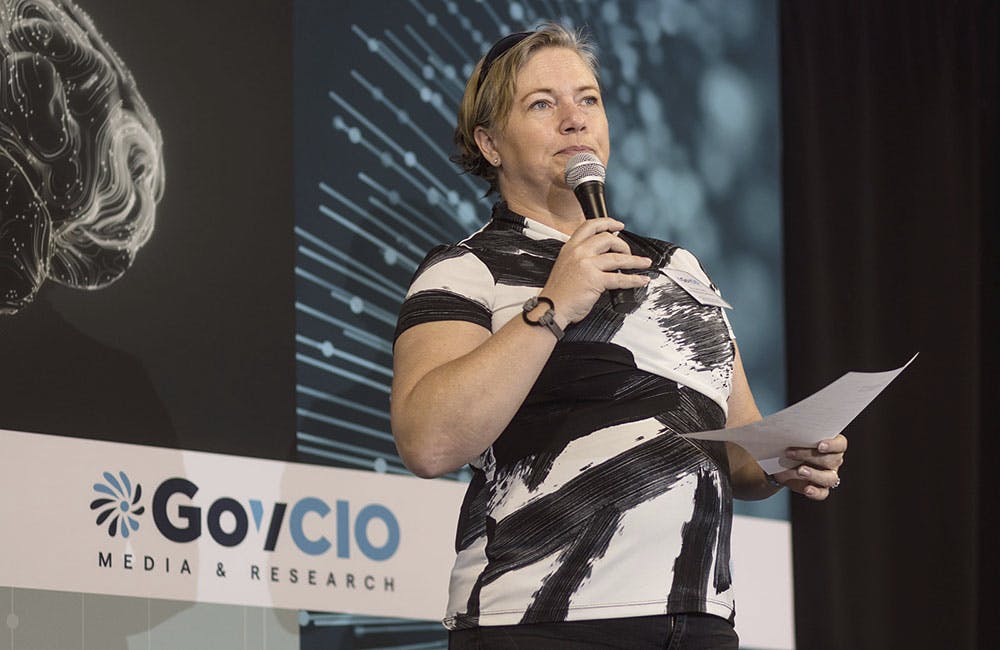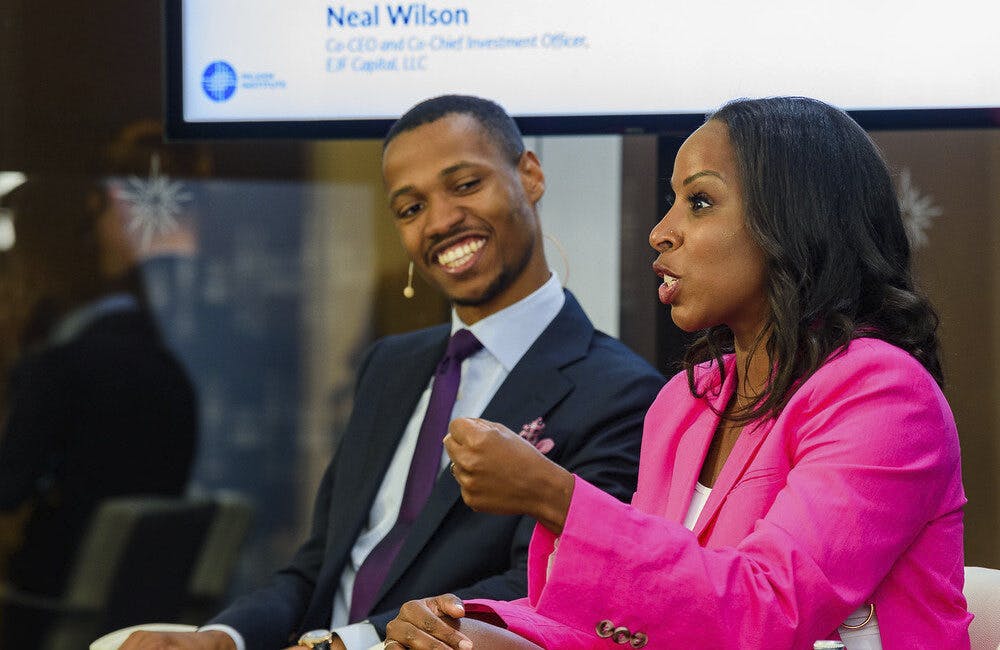Trump’s Education Nominee Calls for Tech Vocational Programs
Linda McMahon has called for investments in the tech workforce and small businesses to remain competitive.

President-elect Donald Trump’s nominee for secretary of Education Linda McMahon, former head of the Small Business Administration (SBA) and Worldwide Wrestling Entertainment (WWE) executive, said developing tech vocational programs and investing in small businesses will help maintain superiority in the global tech race.
McMahon said at Recode’s 2018 Code Conference the government needs to invest more in small technology businesses during her keynote address.
“I still believe that America needs to be the number one technology country in the world, and we need to continue to invest in that,” said McMahon during her keynote. “Working more with the small business community to make sure those inventions, that technology that they’re working … can be commercialized, so they can actually be developed and applied.”
McMahon said the U.S. needs to support vocational programs, similar to how traditional college pathways are funded, to boost the nation’s tech expertise. In September, McMahon wrote the opinion piece, titled “Workforce Pell Grants will create high-paying jobs for more Americans,” expressing how these programs will boost the economy and keep a steady workforce.
“For example, software development ‘boot camps‘ that teach coding and other skills related to digital infrastructure led to salary increases of $10,000 to $20,000 for almost all participants and increases of more than $30,000 for nearly half,” wrote McMahon. “Yet Pell Grants, the main form of financial assistance for low-income families trying to help boost their child’s career prospects, cannot be used to pay for these programs, leaving behind countless underserved communities. Pretending college is the path for everyone is incredibly outdated.”
All4Ed’s Director of Professional Learning and Leadership Adam Phyall spoke with GovCIO Media & Research about McMahon’s support for vocational programs.
Phyall said many jobs require understanding of technology, and educators want to ensure the resources are available to students at all levels. Phyall added the future tech workforce will rely on a combination of training in addition to updated technology and policy.
“[When we are] talking about cybersecurity, digital citizenship, these things are so important for our students. Some of our educators aren’t experts in those fields. Ensuring that we have the resources in place to either hire the staff or pay for support to get our staff comfortable, and support our students with their cybersecurity and digital access, is paramount as well,” said Phyall.
Robert Daugherty, former dean of Forbes School of Business and Technology told GovCIO Media & Research that, if confirmed by the Senate, McMahon will likely create policy that centers vocational learning.
“[It’s important to have] that ethos and [develop] public policies around how you create incentives to get people to go to vocational schools,” said Daugherty. “Celebrating pathways to vocational education will do a lot of good, because it doesn’t matter if you have a college degree.”
This is a carousel with manually rotating slides. Use Next and Previous buttons to navigate or jump to a slide with the slide dots
-

White House Science Chief: US-Driven AI Sets Global Standards
Michael Kratsios outlined how American AI technology on the global stage will help standardize the tech and counter China’s influence.
5m read -

White House Unveils AI Action Plan to Secure Global Dominance
The strategy outlines steps to accelerate private sector innovation, build critical infrastructure and advance U.S. leadership in AI policy and security.
3m read -

Doing More with Less is Muscle Memory for IRS, Former Deputy CIO Says
Darnita Trower discusses her experience, the legacy she’s left behind and how she pushed the IRS to modernize itself,
20m watch -

Opinion: Original Intelligence Is the Missing Piece for AI Transformation
Limitations of AI agents and development drive growing needs for workforce development and "original intelligence."
3m read -

VA CIO Targets Modern IT and Smarter Workforce Alignment
Agency leaders told lawmakers they are focused on trimming legacy systems and restructuring its workforce to streamline operations.
3m read -

Pentagon's $200M AI Contracts Signal Broader Effort to Transform Talent
The Army is leveraging Silicon Valley, reservist programs and new hiring strategies to integrate critical digital skills in its ranks.
5m read -

Inside DOD’s Push to Grow the Cyber Workforce Through Academia
Diba Hadi gives her first interview since becoming principal director of the DOD’s Cyber Academic Engagement Office.
15m listen -

Generative AI Demands Federal Workforce Readiness, Officials Say
NASA and DOI outline new generative AI use cases and stress that successful AI adoption depends on strong change management.
6m read -

Data Transparency Essential to Government Reform, Rep. Sessions Says
Co-Chair of the Congressional DOGE Caucus Rep. Pete Sessions calls for data sharing and partnerships to reduce waste and improve efficiency.
5m read -

DOD Turns to Skills-Based Hiring to Build Next-Gen Cyber Workforce
Mark Gorak discusses DOD’s efforts to build a diverse cyber workforce, including skills-based hiring and partnerships with over 480 schools.
20m listen -

Trump Executive Order Boosts HBCUs Role in Building Federal Tech Workforce
The executive order empowers HBCUs to develop tech talent pipelines and expand access to federal workforce opportunities.
3m read -

Tracking CIOs in Trump's Second Term
Stay informed on the latest shifts in federal technology leadership as new CIOs are appointed and President Trump's second term takes shape.
6m read
















